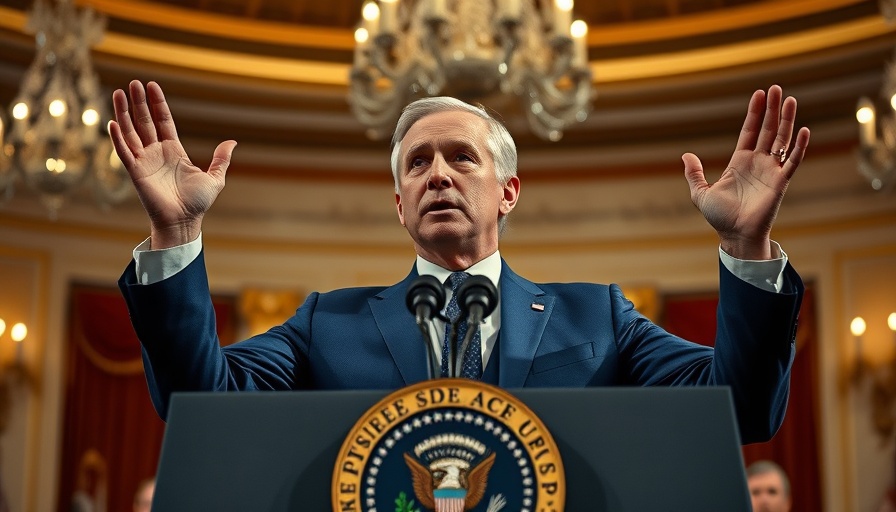
Trump's Anticipated Meeting with Xi: What It Means for US-China Relations
In a recent announcement, former President Donald Trump expressed that Chinese President Xi Jinping is expected to visit Washington in the "not too distant future." This remark comes at a crucial point in US-China relations, where ongoing trade disputes and diplomatic tensions continue to shape discussions. Though the exact timing and agenda remain unclear, this potential meeting may signal a new phase in how the two superpowers engage with each other.
Understanding the Current Climate of U.S.-China Relations
The U.S.-China relationship has historically been tumultuous, marked by issues ranging from trade disputes to geopolitical tensions over Taiwan. Trump's comments about Xi's visit reflect a willingness to engage directly with Chinese leadership, reminiscent of past administrations that operated under the paradigm of open diplomacy. As Trump has emphasized the need to improve Washington's ambiance in preparation for Xi's arrival, they hint at a significant approach towards enhancing bilateral relations amid competing economic interests.
Grading Washington: Can Diplomacy Clean Up the Capital?
During a recent board meeting, Trump noted the disrepair of Washington, suggesting that beautifying the city would be essential for Xi's visit. By drawing attention to the infrastructure state, Trump aims to set a tone of respect and seriousness expected from both parties. However, critics argue that such distractions should not overshadow the more pressing economic and diplomatic agendas both leaders must address during their discussions.
The Potential for a 'Grand Bargain'
Analysts have speculated on what a potential deal might entail when Trump meets Xi. Could the former president—believing he is the ultimate dealmaker—propose a Richard Nixon-style reset of relations? Some experts suggest that while Trump's personality may lend itself to backroom negotiations, the nature of U.S.-China relations requires a more strategic approach that balances cooperation and competition.
Points of Contention: Trade, Technology, and Regional Dynamics
The sticking points in negotiations will likely include technology transfers and trade imbalances, continuing points of contention. Beijing will be eager to secure favorable trade terms while minimizing compromises on issues like military actions in Taiwan and human rights violations. For the U.S., safeguarding its strategic interests and enhancing its significance in the Asia-Pacific region must navigate complex domestic and international pressures.
Future Predictions: What Comes Next?
The landscape of international relations is ever-evolving, and many analysts predict that any meetings between Trump and Xi will set a framework for how the two nations navigate post-pandemic recovery and economic rebuilding. From securing mutual trade agreements to strategically addressing military concerns in contested regions, the ramifications of these discussions could ripple throughout the global economy, particularly affecting Bay Area businesses and Silicon Valley startups.
Engagement Strategies and Business Implications
The Bay Area's economy heavily intertwines with international relations. Firms seeking venture capital funding or those involved in tech innovations will closely watch the unfolding dialog. Increased collaboration or exacerbated conflict could shift corporate strategies and influence employment trends in the region. Recognizing how national policies interplay with local economic landscapes will be critical for leaders in the area.
Conclusion: What Should We Do Now?
With Trump and Xi's upcoming discussions on the horizon, it is essential for business leaders and policymakers to remain alert. Engaging in proactive dialogue about these international developments ensures that local businesses can adapt swiftly to changes and capitalize on emerging opportunities. As we continue to follow these crucial developments, staying informed can provide a competitive edge in an unpredictable market.
 Add Row
Add Row  Add
Add 



Write A Comment